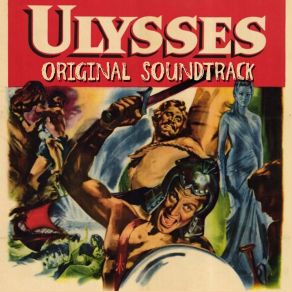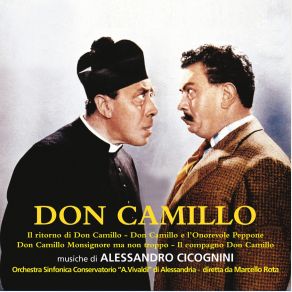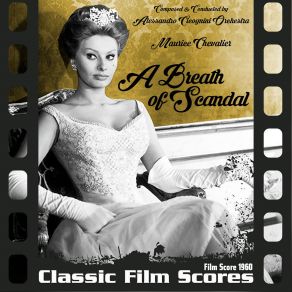Alessandro Cicognini
Wikimp3 information about the music of Alessandro Cicognini. On our website we have 5 albums and 2 collections of artist Alessandro Cicognini. You can find useful information and download songs of this artist. We also know that Alessandro Cicognini represents Theatre/Soundtrack genres.
Biography
[Edit]Alessandro Cicognini was, for 20 years after World War II, the single most influential voice in film music in Italy, as the composer of choice for Italy's most successful postwar filmmaker, Vittorio De Sica. Trained as a classical musician and composer at Milan's Conservatory of Music, he came to film music in 1936, in the belief that movies had supplanted theater and melodrama as popular entertainment. He had worked in Italian cinema for 10 years, with such directors as Augusto Genina and Alessandro Blasetti, before he met De Sica in 1946, while the latter was working on the first of his classic neo-realist film, Shoeshine. Cicognini provided De Sica with a score that managed to couple dark string passages with fragments of popular tunes, which captured the mood of despair surrounding Roman teenagers trapped in poverty and delinquency. His next score, The Bicycle Thief (1948), which earned an award as Best Soundtrack of the Year, displayed a lyricism reminsicent of Puccini's best operas. As with all film composers, Cicognini was, to some degree, at the mercy of the quality of the films he scored, but in his case that was not a problem, nor was there any element of "mercy" involved. Indeed, he became the most well-known Italian composer of film music in the world beyond Italy, as his music, attached to one De Sica masterpiece after another for more than a decade, was heard by audiences all over the world. This exposure allowed him to move relatively easily into international film work during the mid-1950's—Cicognini wrote the music for the costume adventure Ulysses (1955), starring Kirk Douglas, and also for the romantic comedy Summertime (1955), starring Katharine Hepburn and Rossano Brazzi, and in 1962 he scored the Hollywood-produced comedy The Pigeon That Took Rome. But De Sica remained for almost two decades the source of some of his best inspirations. Composer and director were of one mind on the best of these, and, especially, the wry wit that informed one's images and the other's sounds. A good example is the gentle waltz that makes up much of Umberto D (1952), a tragic yet engrossing story about an old man who has no place else left to go, and ultimately comes within moments of killing his one loyal companion—his dog—in despair. Much of Cicognini's music for films is characterized by the use of small ensembles, in sharp contrast to full orchestral scoring, and unusual instruments, and the mixing of musical genres. His ability to capture varying moods was put to good use by the filmmaker in Gold Of Naples (1954), an anthology of four humorous yet serious stories, which the composer translated into some of the most appealing music of his career. His music for The Last Judgement (1961) is some of the most inventive of his career, alternating between epic passages, gentle lyricism, and waltz. Cicognini's masterpiece, however, is the score he wrote for De Sica's Miracle In Milan (1951), one of the sweetest, saddest movies ever made, a fantasy built around the plight of displaced persons living in dire poverty—the music captures the mix of joyous, impassioned fantasy and the undercurrent of bitter despair behind it as well as any shot in the movie, its chorus (which entered the Italian popular music vernacular) a biting and haunting distillation of the movie's message. Cicognini gave up film composition in 1965 in favor of a career in teaching. By that time, younger composers such as Mario Nascimbene and the latter's one-time assistant, Ennio Morricone, were dominating the film music of Italy, incorporating more direct Hollywood influences. He never preserved any of the written scores of his film work, but scholar Giorgio Spacca has undertaken the reconstruction of his best work for the cinema in usable performing editions, and conductor Nicola Samale has obliged by recording much of it commercially in the 1990's.
Title: Le Jugement dernier (Film Score 1961)
Artist: Alessandro Cicognini, Studio Ensemble
Genre: Dancefloor, Dance Pop, Theatre/Soundtrack
Title: Tema (From "Ladri di biciclette") - Single
Artist: Alessandro Cicognini
Genre: Theatre/Soundtrack
Collections
Title: Anonimo veneziano e i grandi temi d'amore
Genre: Theatre/Soundtrack
Featuring albums
Title: It Started In Naples (Film Score 1960)
Artist: Various Artists
Genre: Dancefloor, Dance Pop, Theatre/Soundtrack











